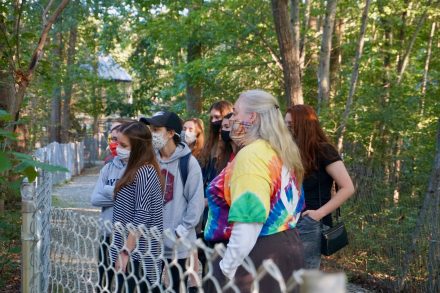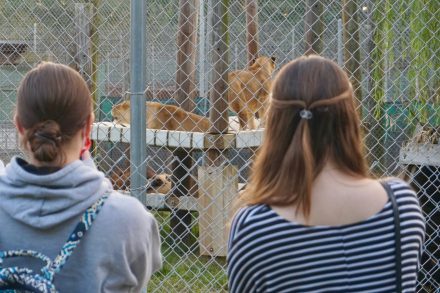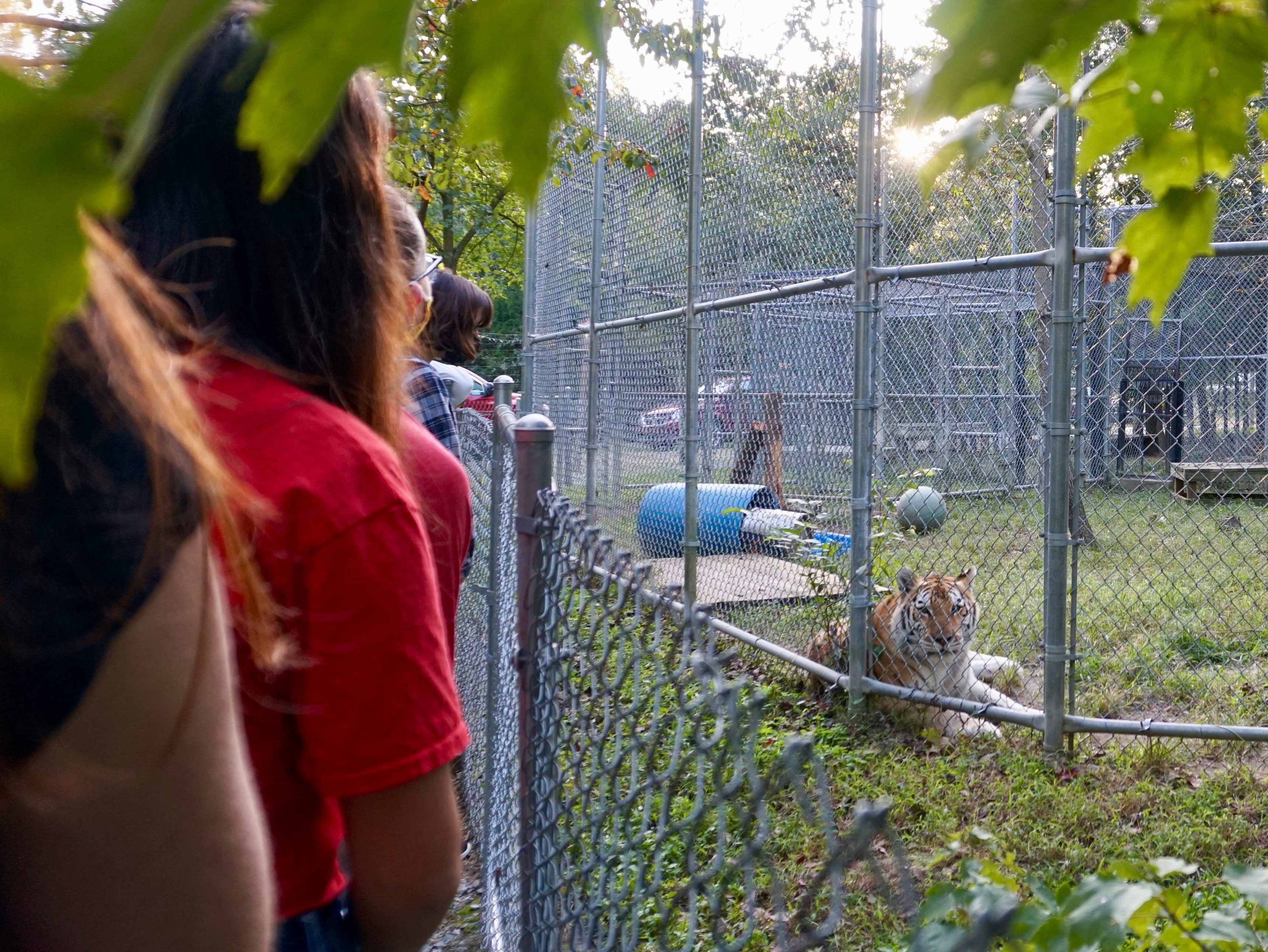The annual first-year experience hosted by the Animal Park at the Conservators Center happened through in-person and virtual tours.
The Elon College Fellows’ third annual Big Cat Colloquium adapted to COVID-19 times this fall, featuring both in-person and virtual tours of the Animal Park at the Conservators Center.
First-year fellows embark on the trip to the animal park north of Burlington in Caswell County each fall to analyze the ways academic disciplines merge in the real world. The math and natural sciences, social sciences, and the arts and humanities each have important roles at the park, which educates the public about big cats, wolves, and other exotic animals housed there. Students will use observations and discussions about interdisciplinary work there in assignments for the fellows’ cohorted COR 110: The Global Experience courses.
The event is also an early social and bonding experience for the first-year students. That aspect is even more important this fall with physical distancing and hybrid classes a necessary part of campus life. Program directors were determined to find a way to make the experience possible.
“In this semester of uncertainty, we still really wanted to give the first-years at least one cohorted experience as best we could under the circumstances,” said Elon College Fellows Director and Professor of Psychology Kim Epting.
The 53 first-year fellows were able to choose whether to tour in person or virtually. Special accommodations were made for physically distanced transportation to and from the park.

On-site tours were held in small numbers and led by park staff including Elon College Fellows Director and Professor of Psychology Kim Epting and Associate Professor of English Kim Pyne. Professor of Chemistry Karl Sienerth, Professor of Political Science and Policy Studies Jason Kirk and Associate Professor of Computer Science Shannon Duvall accompanied the groups.
“Beyond being in place like that where you’re close to these animals, students seemed really appreciative of the opportunity to get off campus and be in a physical place,” Kirk said, “particularly a place that’s a little bit removed from technology and the world right now.”
Simultaneous with the on-site tours, online attendees, including Associate Professor of French Sophie Adamson, watched a pre-recorded virtual tour also led by Pyne. Epting joined the virtual group from the park to assist afterward with a question-and-answer session.
“The students were enthusiastic about being there and attending virtually. They were engaged and asked observant, insightful, intelligent questions,” Epting said. “This is the third year we’ve done this and it may have been the best one yet.”

For Anna Derr ’23, the experience was also valuable for confronting some deeply held beliefs. A psychology major, she approached the facility observing the effects the guides’ stories, the proximity to animals, and the facility’s general atmosphere has on visitors. She feels zoos and animal parks normalize the keeping of exotic animals in cages. The visit didn’t change her mind, but she came away understanding the park staff genuinely love the animals and prioritize their well-being.
“It was eye-opening, and it reinforced the idea that nothing in the world is black-and-white,” Derr said. “I think it’s important to engage with the grey area. Supporters of these parks are passionate about them. I have strong opinions, but at the same time, I want to hear other people’s opinions. I think it’s a good lesson, and it’s not something I would have experienced otherwise.”



